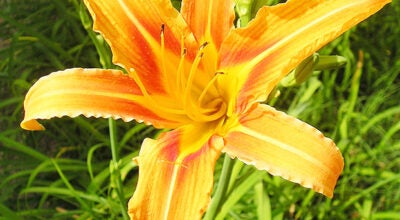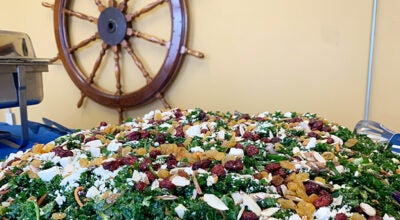Unlikely tribute to a working Cajun
Published 9:35 am Wednesday, October 24, 2018
When Jerry Bellot wanders over from Jerry’s Automotive & Front End, we can agree on this heartily: We prefer traditional Cajun music. But even “traditional” means different things to different people — maybe Jerry and me, included.
I lean toward the Zachary Richard variety of Cajun music, so we’re talking circa 1970s. But Jerry, a generation ahead of me, will tell you right quick that Richard is more popular in Europe than in the Cajun heartland. He “does his thing,” Jerry suggests, and maybe that’s not wholly traditional in Jerry’s mind. Fair enough. Richard can play anything.
Jerry, who has blessed us in this newsroom by playing the accordion, may lean toward older Cajun musicians. They might include Doug Kershaw — my wife and I rushed the stage for Kershaw once, without fully realizing it — or D.L. Menard or even Harry Choates, “Fiddle King of Cajun Swing,” who wandered over from Cow Island, south of Kaplan, Louisiana, to make his musical mark in Port Arthur. His version of “Jole Blon” made the traditional tune popular nationally.
No matter. Jerry and I can agree on this: Festivals Acadiens et Creoles in Lafayette is a “must experience” event if you love the music and culture, both for French speakers like Jerry and for non-French speakers like myself. I made the trek from Port Arthur to Lafayette on Oct. 12-14 for the festival; this year didn’t work out for Jerry.
That’s too bad because this was an unusual year and not a bad one for traditionalists. D.L. Menard is gone, of course, but his granddaughters — Danae Simmons, Victoria Theriot and Sarah Menard — form the group Autumn Wild and they performed. So did Zachary Richard and Ann Savoy and Steve Riley and other longtime favorites.
My wife and I missed the Lafayette Rhythm Devils — that’s our favorite dance band — although we limit ourselves to waltzes nowadays, mostly for the protection of ourselves and those on the dusty, makeshift dance floors.
Tradition came aplenty this year, though, when Caesar Vincent was honored. An itinerant farmer in Vermilion Parish, which touts itself as “the most Cajun place on earth,” Vincent never owned a TV or a car. His claim to fame is a special one, though, unearthed by scholar Barry Ancelet, who co-founded Festival Acadienes more than 40 years ago.
Now “retired” — that means he gets to do more research — Ancelet combed through the archives of Cajun music stored at the University of Louisiana at Lafayette library and found some 44 recordings of Vincent, who himself was a walking treasure trove for French music. Vincent used to sing traditional songs across his native land, and was found to know the words and melodies of countless ancient songs. Among them, he sang “Travailler C’est Trop Dur,” which he sang for academic researchers in the 1950s.
The song was later recorded numerous times, and became a favorite. Among those who recorded it was Zachery Richard, but others did, too, and at times it was a hit. Everyone knew it.
My former colleague and friend at The Daily Advertiser in Lafayette, Herman Fusilier, wrote that some of the songs Vincent sang dated back to the Middle Ages. “Travailler C’est Trop Dur,” or “Working is Hard,” has even been covered by reggae star Alpha Blondy, Fusilier wrote, and that video has more than 7 million views. Richard’s video of the same song had 765,000 views, Fusilier wrote.
That’s why Vincent was honored, for the pieces of French musical history he carried forward before his death in 1970. He got more than the festival T-shirt — the annual festival’s honoree is depicted there — because the songs his memories preserved were covered in a two-CD set that Ancelet guided that included Cajun musicians like Riley, Roddie Romero, Bonsoir, Catin and more. Bellot would have enjoyed that and, unlike me, would have known what the words meant.
Here’s some of how Richard translated “Travailler C’est Trop Dur,” which is known well on the continent: “Working is too hard/and stealing is not pretty/Asking for charity is something I cannot do./Each day that I live, they ask me, on what do you survive?/I say I live on love, And I hope to live old.”
I got this special treat, too, at Festival: I searched for Richard’s new CD and found it at a table in the merchandise tent — in front of the Great One himself. He signed it for me and said he knew Whites — originally LeBlancs — who moved to the Texas coast and lived in the shadows of two cultures: In Texas, he said, they were derided as Louisiana “coonasses”; in Acadiana, they were called Texas “rednecks.”
They settled on White for a surname, he said, to avoid the headaches. But Cajuns have faced much worse.
Ken Stickney is editor of The Port Arthur News.





